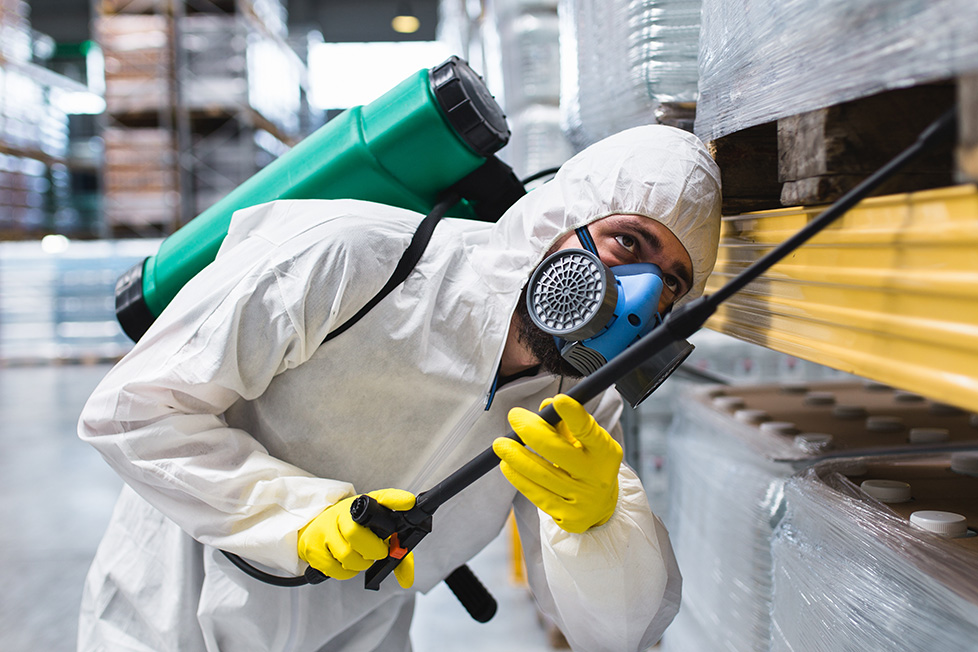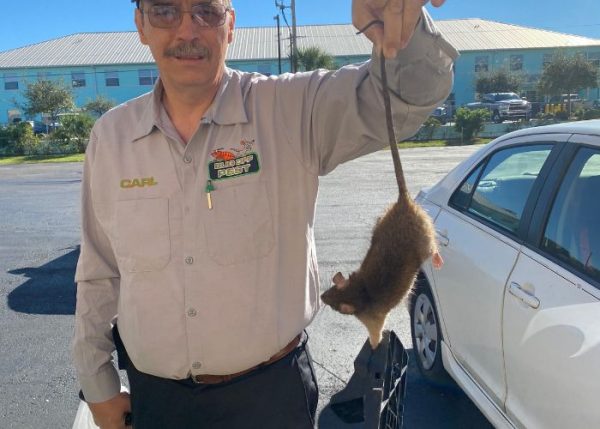Checking Out Ingenious Techniques and Products for Efficient Pest Control
The landscape of parasite control is evolving, marked by the introduction of cutting-edge techniques and products designed to enhance efficiency and sustainability. From smart traps equipped with advanced monitoring systems to biological techniques that employ natural predators, these advancements offer a paradigm shift in just how we approach pest management.
Smart Traps and Checking Systems
Just how can contemporary innovation enhance insect administration? One substantial development is the growth of smart catches and keeping an eye on systems, which supply real-time information and analytics for efficient insect control. These systems utilize sensors and cordless technology to find pest task, signaling home managers and bug control experts to invasions before they intensify.
Smart traps are furnished with functions such as bait stations that attract pests and record them effectively. These catches can be kept track of from another location, permitting prompt treatments and lessening the demand for substantial chemical applications. The combination of machine discovering algorithms allows these systems to distinguish between target pests and non-target varieties, boosting the precision of pest control procedures.
In addition, the information collected from clever catches can be analyzed to determine patterns in pest habits and environmental aspects adding to problems (Pest Control in Port Charlotte). This details is important for establishing targeted bug monitoring approaches customized to details environments. By embracing smart traps and keeping track of systems, pest control experts can boost their operational effectiveness and reduce the ecological impact of pest management, ultimately leading to more secure and extra sustainable practices in the industry
Organic Parasite Control Approaches
Making use of all-natural predators and bloodsuckers, organic parasite control methods use an eco pleasant option to chemical treatments. This strategy entails the intro or enhancement of particular organisms that can normally manage parasite populaces, thereby minimizing dependence on artificial pesticides. Common examples include using ladybugs to control aphid problems and parasitic wasps to target caterpillars.

Organic control can be classified into three major methods: classical, augmentative, and preservation. Timeless biological control involves importing all-natural opponents from the pest's native environment, while augmentative control includes increasing the population of existing natural enemies with launches. Preservation approaches concentrate on producing problems that support these beneficial organisms in the ecosystem.
The effectiveness of organic bug control depends upon comprehending the complicated communications within environments. It often calls for an extensive analysis of bug dynamics and the life process of both the parasites and their all-natural enemies. While organic methods might not provide instant results like chemical choices, they add to long-lasting bug management and ecological community wellness. As understanding of ecological problems expands, biological bug control approaches are significantly identified for their sustainable duty in integrated insect management programs.
Eco-Friendly Chemical Alternatives
Environment-friendly chemical alternatives provide a sensible option for parasite monitoring that reduces ecological influence while effectively controlling parasite populations. These alternatives are derived from natural sources and are very carefully developed to target certain parasites without hurting valuable organisms, making them an important component of sustainable parasite control strategies.
Amongst one of the most efficient green alternatives are plant-based pesticides, such as neem oil and pyrethrin, which are derived from the seeds and flowers of various plants. These substances disrupt the life process of insects, reducing their populations without the hazardous results connected with traditional chemicals - Pest Control in Port Charlotte. Additionally, essential oils like pepper mint you could check here and clove oil show repellent residential properties, further enhancing their energy in pest management

Furthermore, eco-friendly chemical choices commonly break down faster in the atmosphere, minimizing the risk of soil and water contamination. This characteristic aligns with the boosting consumer need for lasting techniques in agriculture and city parasite control. As research remains to breakthrough, the growth of ingenious environmentally friendly formulations will additionally improve efficacy and widen application areas, allowing pest monitoring experts to adopt greener, extra liable approaches in their techniques while safeguarding human health and the setting.
Scent Interruption Techniques
An additional cutting-edge strategy in lasting insect monitoring is using scent disturbance strategies. These techniques make use of the natural chemical signals, or scents, that bugs make use of for interaction, especially in mating behaviors. By interfering with these signals, insect populations can be properly managed without resorting to unsafe chemicals.
Pheromone traps are commonly utilized in this technique. These catches my website use synthetic variations of insect scents to tempt male pests, consequently lowering their capability to find females and replicate. Over time, this can bring about a significant decrease in parasite populaces. In addition, the release of repellent pheromones can develop confusion amongst insects, better inhibiting their breeding processes - Pest Control in Port Charlotte.

Integrated Pest Monitoring Methods
Effective pest control typically calls for a thorough method, and Integrated Bug Monitoring (IPM) methods provide a structure for achieving this goal. IPM incorporates different monitoring methods to decrease insect populaces while decreasing dependence on chemical pesticides. This complex strategy begins with thorough monitoring and recognition of pests, permitting targeted treatments based upon particular parasite stress.
Social practices, such as crop rotation and cleanliness, play an essential duty in preventing insect establishment. Biological controls, including go to this site natural predators and parasitoids, are employed to maintain bug populaces at manageable levels. When essential, discerning chemical therapies are applied, stressing reduced poisoning to non-target types and the environment.
In addition, education and learning and outreach are integral parts of IPM, promoting awareness amongst stakeholders regarding lasting practices and pest life cycles. The flexibility of IPM allows practitioners to react effectively to altering bug dynamics and ecological conditions. By utilizing this alternative method, IPM not just improves bug control effectiveness but also adds to long-lasting eco-friendly balance. Ultimately, Integrated Bug Management stands for a forward-thinking option that straightens farming productivity with ecological stewardship, making it essential in contemporary insect control approaches.

Final Thought
In final thought, the assimilation of innovative techniques and products for effective parasite control stands for a significant advancement in sustainable parasite monitoring. Smart catches and monitoring systems, biological pest control methods, environment-friendly chemical choices, and scent interruption techniques collectively boost the efficiency of insect administration techniques.